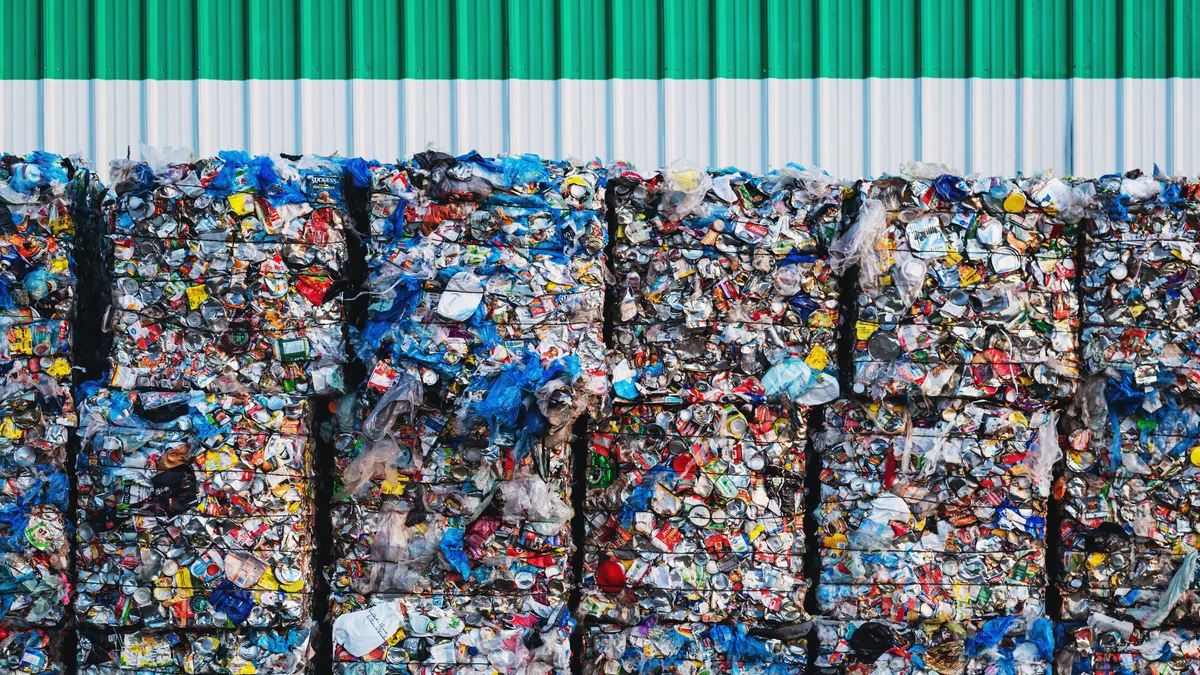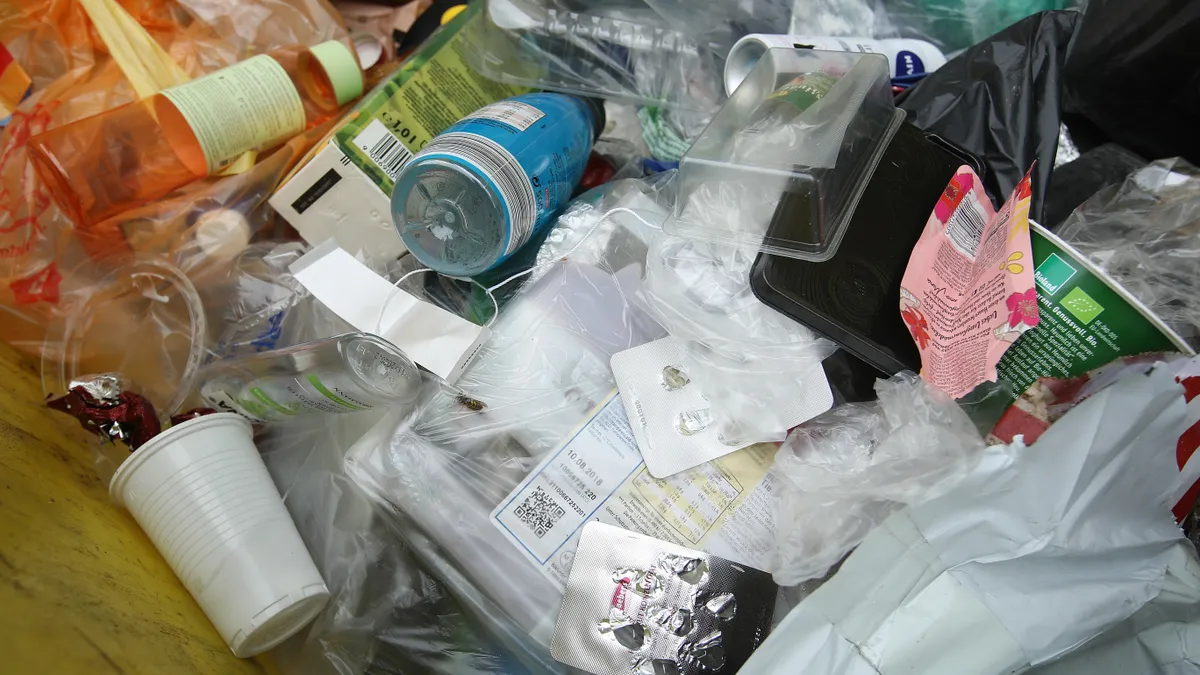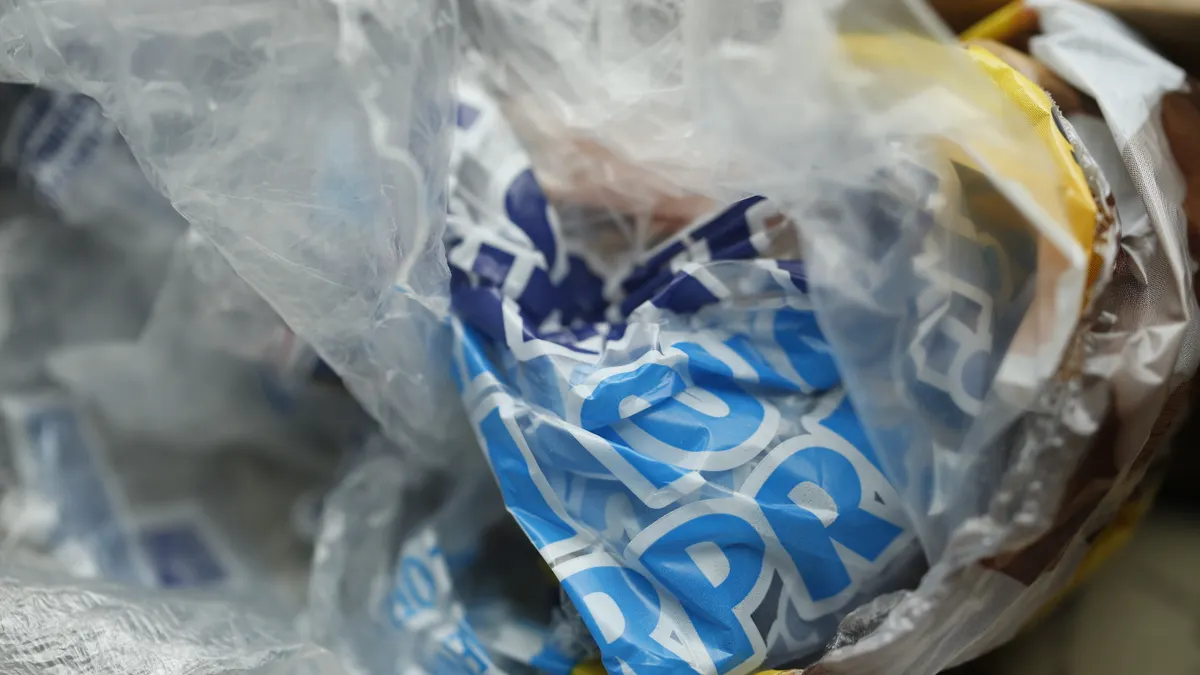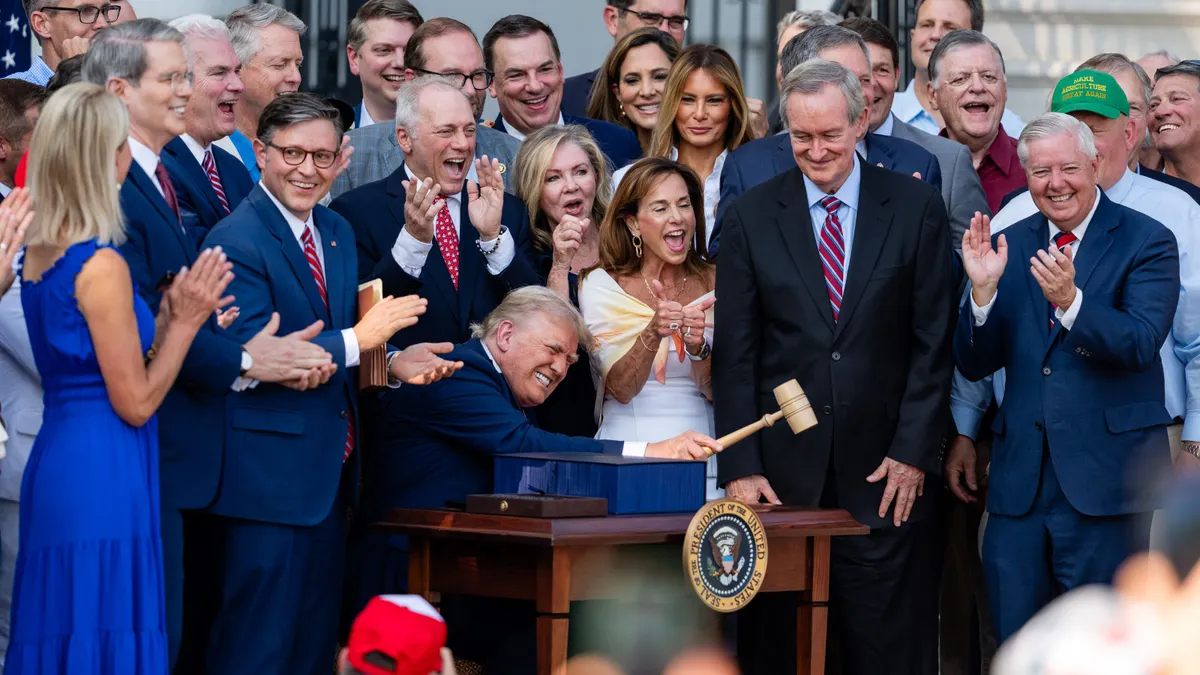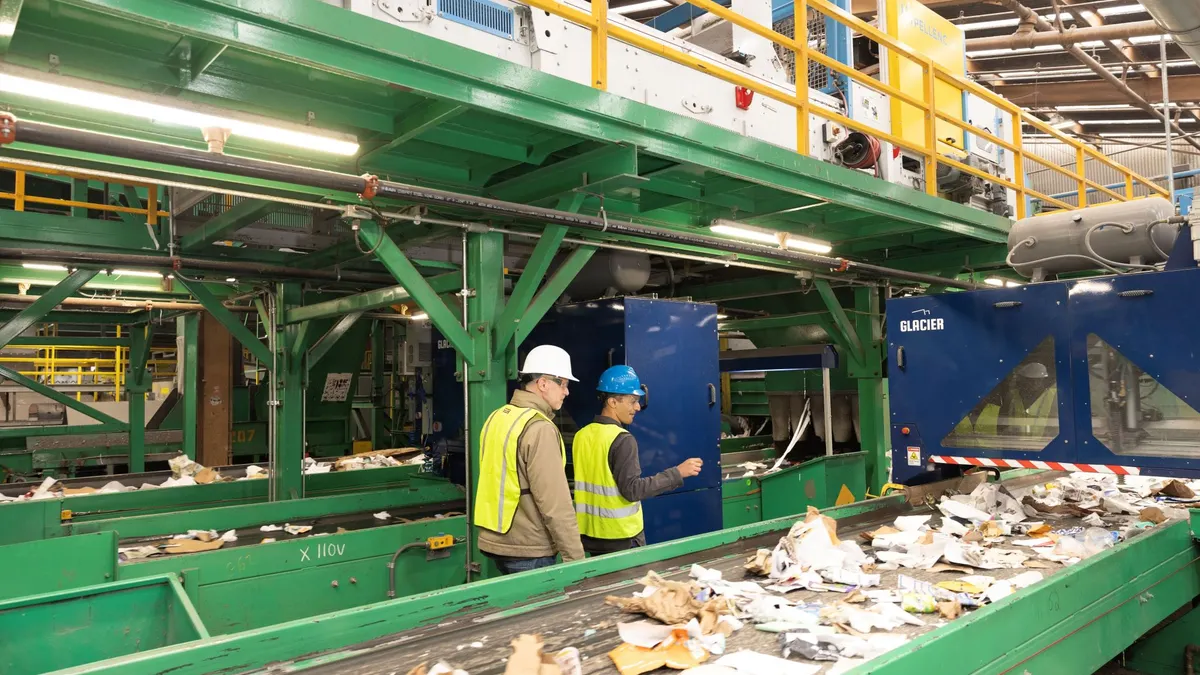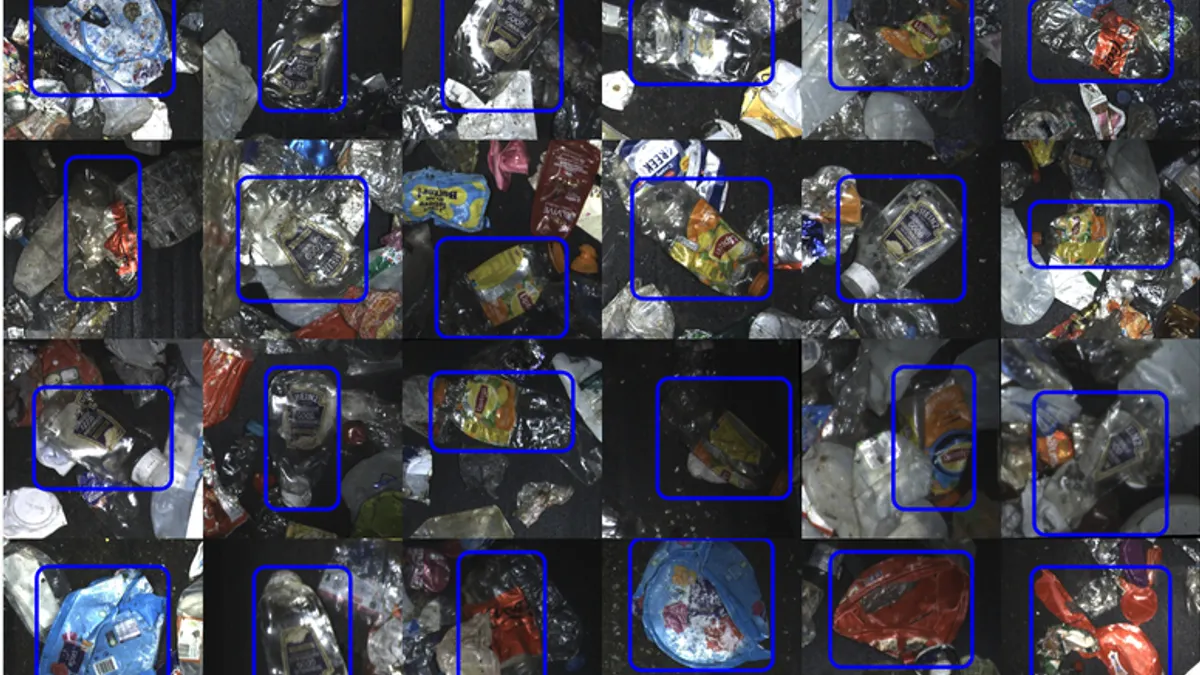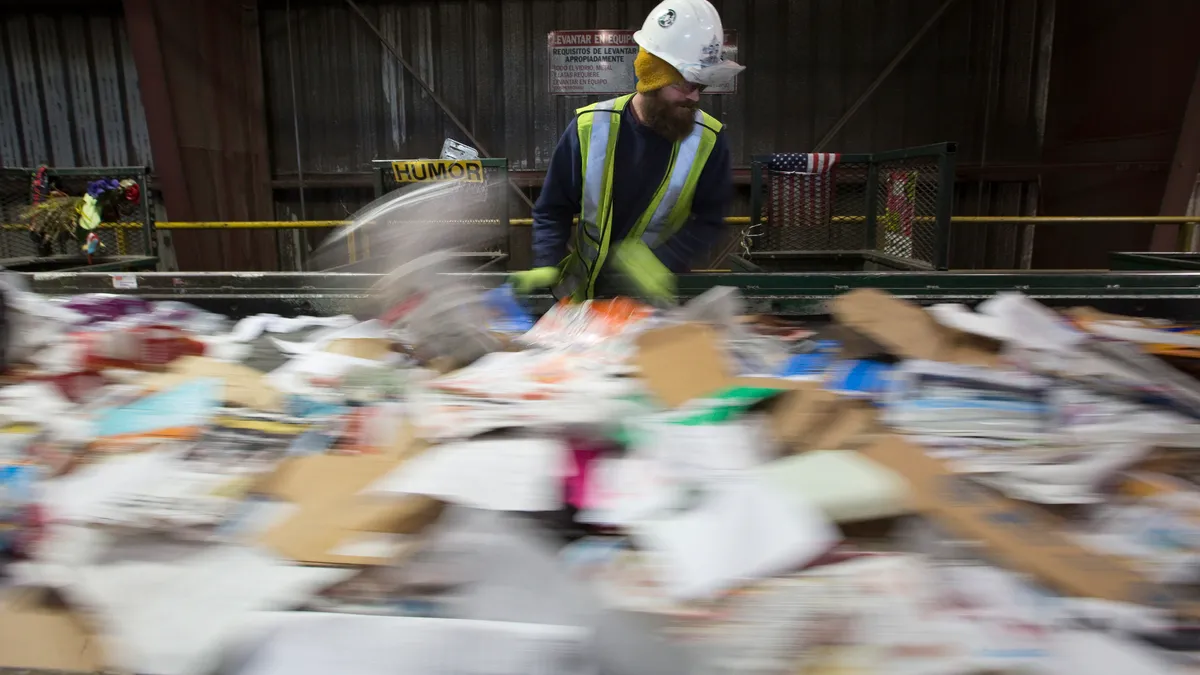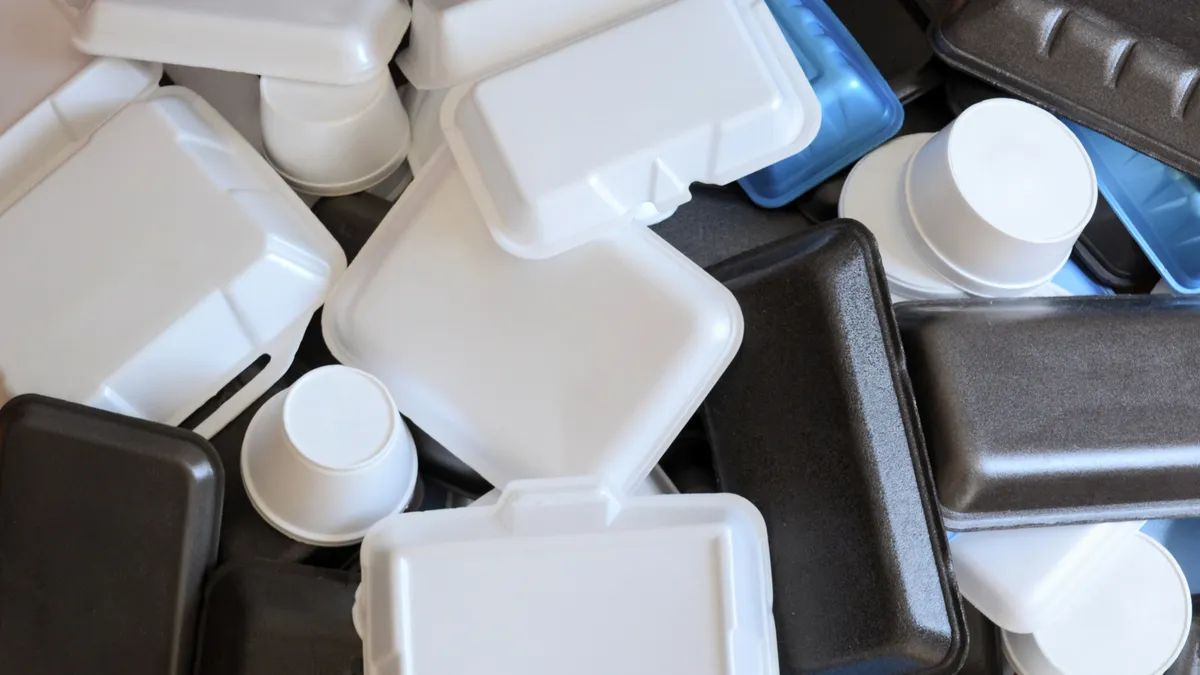About 623,000 tons of recyclables are currently landfilled instead of recycled each year in Louisiana due to limited or lack of recycling access, but the state is primed to make meaningful improvements, according to a recent report from The Recycling Partnership.
During a webinar on Wednesday, TRP researchers and members of the Louisiana Recycling Coalition discussed the state’s current residential recycling infrastructure, as well as options for increasing access — particularly to rural areas, multifamily housing and other residential customers. The discussion comes as some of the state’s major cities, like Shreveport, have cut curbside programs and seen MRFs close in recent years.
TRP “has a strong interest in the Gulf Coast region, as we see it as an area with significant opportunities to improve and support the development of a more robust recycling system,” said Marissa Ambrosi, TRP senior researcher, during the presentation.
The Gulf Coast region is one of the best in the country for recyclable materials end markets, researchers said. To fuel those markets, the state can make new investments in drop-off recycling programs in rural areas, identify areas to introduce services for multifamily buildings and promote supportive policy models. Funding from local, federal or nonprofit sources could help, along with public outreach campaigns, researchers said.
Here’s a look at the findings from the recent report.
Residential recycling access challenges
Large areas of Louisiana do not have access to public residential recycling services, the report found. About 45 of the 190 municipalities and parishes included in the report offered some kind of residential program. Of those, 23 were curbside, while 21 were staffed drop-offs and 6 were unstaffed drop-offs. Some of these recycling options may not be adequate or convenient for households, the report said.
The state faces unique challenges “that have stunted the development of a more robust system,” according to the report. Hurricanes have damaged systems or impacted processing capacity, and municipal programs may deal with increased costs. The state also has large rural regions where it may not be cost-effective or practical to roll out programs like curbside collection, they said.
All of the operating recycling programs in the state are run by municipal or parish employees, and the Louisiana Department of Environmental Quality does not have a recycling department, or a position dedicated to overseeing and supporting residential recycling in the state, the report said.
Disposal costs in the region also tend to be “extremely inexpensive” compared to other regions of the country, making it a competitor to recycling in some areas, said Craig Wittig, TRP’s vice president of grant implementation.
Louisiana also does not have enough MRF processing capacity for the state, researchers said. Plus, the existing MRFs are concentrated in higher-population areas, making it harder for more rural areas to have equal access. Louisiana has two main MRFs in the state, which serve the Baton Rouge and New Orleans areas representing more than half the state’s population. A third MRF is located in Texas, near the border with Louisiana.
Robust end markets
Despite these challenges, Louisiana and the larger Gulf Coast region have numerous end markets for recycled commodities, presenters said. Ambrosi pushed back against assumptions that Louisiana’s less-developed recycling infrastructure is partly because MRFs aren’t finding buyers. “That belief is incorrect,” she said.
The report lists several large fiber mills with locations in Louisiana, including Greif, Georgia-Pacific, International Paper, WestRock, Smurfit Kappa and Pratt Industries, as well as locations in neighboring states. The state also has access to several glass, aluminum and plastic producers like Novelis, Indorama Ventures, KW Plastics, Owens Corning and others, the report said.
The region also currently has higher commodity prices compared to the national average, said Keli Ourso Williams, president of the Louisiana Recycling Coalition. “Not only are there end markets, but we're getting some of the highest value [for commodities] in those markets. It might not be [the price] we want, but it's higher than what other people are getting.”
A “very large” MRF in Colorado recently sent its fiber to Louisiana by rail in order to take advantage of the market and commodity prices there, Wittig added. “This shows the material is coming into the state from far away, which is encouraging.” A more robust hub-and-spoke model in the state could help handle an influx of out-of-state material by providing more places to bale and store it, he added. Hub-and-spoke models can also help better connect rural areas to recycling services in larger cities.
Recommendations for improvements
Researchers see an “incredible opportunity” to capture more recyclables to send to such end markets, and grant funding is one avenue to make that happen. “There is good recycling momentum in the state of Louisiana,” the report said.
Leveraging state and federal grants is an option, including the chance for the state to apply for the U.S. EPA's Solid Waste Infrastructure for Recycling grants, Wittig said.
TRP has also provided $726,000 in recycling grants in the state, with the money going toward drop-off recycling locations and educational outreach for the Coushatta Tribe as well as drop-off sites in the town of West Monroe and in Ascension Parish. In New Orleans, TRP helped roll out new carts and conduct a capture study “to try to get back to some pre-hurricane levels of service,” Wittig said.
Drop-off recycling systems are effective for rural or less dense areas, he said, and they can also act as a stepping stone to more formal curbside options with enough support and participation, he said.
TRP also recommends “equitable access” programs that make it just as easy to access recycling services as it is to access garbage services. Drop-off programs situated in areas where residents already self-haul their garbage is one opportunity to capture more recyclables, the report said.
TRP also advocates for extended producer responsibility programs to help shift financial and operational responsibilities from municipalities and parishes. TRP has advocated for such policies across the country, not just in Louisiana, saying “smart, well-designed” programs could raise recycling rates.



